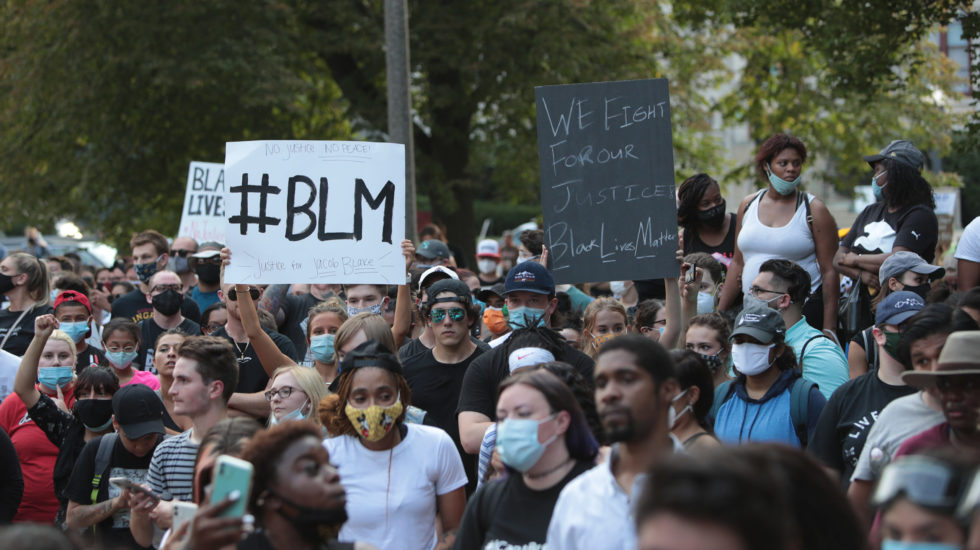The Minnesota justice system held Derek Chauvin accountable for the death of George Floyd. But a reactionary force within the GOP is pushing back on the social justice movement galvanized by the high-profile murder.
Across the country, Republican-led legislatures are pursuing laws that target “unlawful protest.” Proposed punishments run the gamut from losing student loan assistance to being banned from public office. Some states are decriminalizing vehicular assault if it’s aimed at a demonstrator.
(Despite GOP claims to the contrary, a Harvard professor specializing in human rights studied Black Lives Matters protests and found that “96.3 percent of events involved no property damage or police injuries, and in 97.7 percent of events, no injuries were reported among participants, bystanders or police.”)
Earlier this week, Florida Governor Ron DeSantis, a Republican, signed what he called the “strongest anti-rioting, pro-law enforcement piece of legislation in the country.” The law, which went into effect immediately, “grants civil legal immunity to people who drive through protesters blocking a road, which Democrats argued might have protected the white nationalist who ran over and killed counter-protester Heather Heyer during the Charlottesville tumult in 2017. It also makes blocking a highway a felony offense,” according to the Orlando Sentinel.
In a statement, Florida State Senator Shevrin Jones said, “This legislation undermines every Floridian’s constitutional rights, and it is disgusting that the GOP would rather empower vigilantes and silence voice than listen to the majority of Floridians who oppose this dangerous bill.”
Florida is not alone in drafting such legislation. From the New York Times:
While Democrats seized on Mr. Floyd’s death last May to highlight racism in policing and other forms of social injustice, Republicans responded to a summer of protests by proposing a raft of punitive new measures governing the right to lawfully assemble. G.O.P. lawmakers in 34 states have introduced 81 anti-protest bills during the 2021 legislative session — more than twice as many proposals as in any other year, according to Elly Page, a senior legal adviser at the International Center for Not-for-Profit Law, which tracks legislation limiting the right to protest.
The New York Times provides several specific examples:
Republican legislators in Oklahoma and Iowa have passed bills granting immunity to drivers whose vehicles strike and injure protesters in public streets.
A Republican proposal in Indiana would bar anyone convicted of unlawful assembly from holding state employment, including elected office. A Minnesota bill would prohibit those convicted of unlawful protesting from receiving student loans, unemployment benefits or housing assistance.
Human Rights Watch, which generally focuses on horrors overseas, criticized the spate of anti-protest bills:
International human rights law protects the right of peaceful assembly and requires authorities at all levels to facilitate such assemblies and avoid unnecessary or disproportionate restrictions on them. The mere act of planning or participating in a protest should not be criminalized. Authorities are also required to protect people participating in such assemblies – bills that encourage or allow violence against protesters are inconsistent with those obligations, and states should abandon them.



